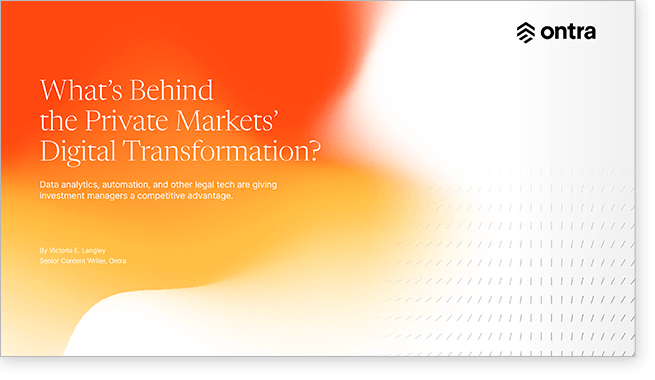
What’s Driving Legal Tech Adoption?
A digital transformation is underway in the investment management industry. Yet asset managers, investment banks, and limited partners are far from taking full advantage of the technology available to them. That could change this year.
Given firms' desire to leverage data to drive faster, more effective decision-making, we’ll likely see more firms adopting advanced, industry-specific tech solutions and partnering with legal outsourcing providers.
In this guide, asset managers will learn:
- The factors influencing legal tech adoption
- What’s still ahead for legal tech adoption
- Ontra’s Legal Operating System for the Private Markets
Learn more about Ontra’s Legal Operating System for Private Markets.
Trusted by 700+ Leading Firms
A Guide to Legal Tech Adoption in the Private Markets
The firm of the future relies on driving efficiency with legal tech solutions and service providers.
Download Now